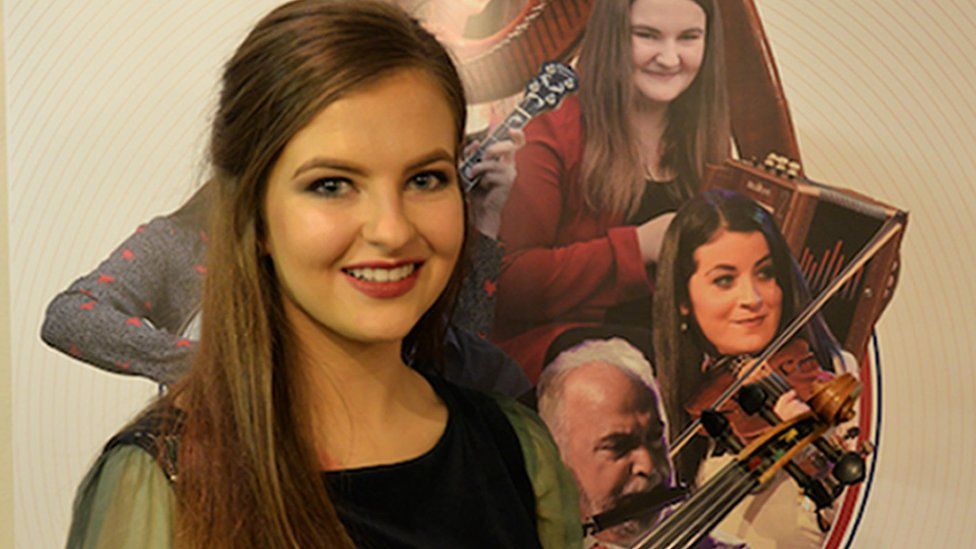33 minutes ago
About sharing
The man convicted of murdering Irish schoolteacher Ashling Murphy has been handed a whole life sentence.
Jozef Puska, 33, from Lynally Grove in Mucklagh, County Offaly, was found guilty at a court in Dublin last week.
Puska stabbed the 23-year-old 11 times in the neck as she jogged on the banks of the Grand Canal near Tullamore, County Offaly, on 12 January 2022.
Ms Murphy’s death caused widespread shock, prompting vigils across Ireland and the UK.
Judge Tony Hunt said the sentence was “richly deserved”.
Dressed in a grey suit with a white shirt and no tie, Puska made no comment or reaction when the sentence was handed down to him through a translator.
The court heard Puska and Ms Murphy, a talented folk musician, were not known to each other and had never met before the attack.
Puska, who is a Slovak national, had pleaded not guilty to her murder.
He claimed he was trying to help Ms Murphy after she had been attacked by another man, who went on to stab him too.
‘A detailed yarn’
Before his arrest, Puska confessed to the killing after being admitted to St James’ Hospital in Dublin for treatment to stab wounds the day after Ms Murphy was killed, the court heard.
He initially told staff in the hospital he had been stabbed in a separate incident in Blanchardstown on the outskirts of Dublin
The judge said in the hours before his surgery, Puska was initially composed enough “to spin a detailed yarn” to healthcare staff.
Gardai (Irish police) attended the hospital to investigate but were immediately suspicious and made a connection to Ms Murphy’s murder.
“Something was a bit off,” with Puska, the judge said.
After his surgery, police officers from Tullamore attended the hospital and spoke with Puska about executing a warrant.
Puska then confessed to a Garda officer, claiming he did not mean to hurt Ms Murphy and killing her was the result of “panic”.
Gardaí said the confession took them by surprise as they had not attended the hospital to interview Puska.
He repeated his confession after being cautioned by the officers, but the interaction was not recorded.
However, a few days later Puska said he had no recollection of the incident.
His defence counsel said this was due to pain medication he was taking, along with a language barrier was later disputed by a pain specialist during the trial.
During sentencing, Judge Hunt said the minor level of medication would “not cause amnesia for major events”.
The judge said Puska gave his confession “lucidly” and was “perfectly coherent” that afternoon.
He praised the Slovak translator who heard the confession, highlighting his “clarity and independence” when giving evidence and said it was fortunate he was present.
The court also heard that DNA evidence belonging to Puska was found under Ms Murphy’s fingernails.
One eyewitness said they had seen Mr Puska on top of Ms Murphy in a hedgerow with her legs kicking out underneath him.
When Puska saw the witness he shouted at her to go away, the court heard.
Following the guilty verdict on 10 November, Ms Murphy’s family spoke outside court about their much loved sister, daughter and girlfriend.
“The judicial process cannot bring our darling Ashling back, nor can it heal our wounds, but we are relieved that this verdict delivers justice,” her brother Cathal Murphy said.
“It is simply imperative that this vicious monster can never harm another woman again.”
Puska, currently separated from other inmates at Cloverhill Prison for his own safety, will now be moved to Dublin’s Mountjoy prison.
He is undergoing psychiatric supervision after attempting to take his own life during the trial.
Ms Murphy’s death sparked a new conversation about violence against women in Ireland and renewed pressure on the Irish government to tackle the issue.
